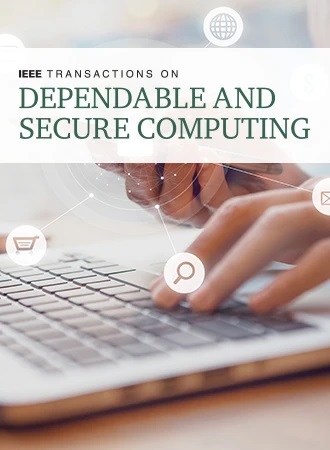逃避共识:无许可设置中的即时可读区块链协议
IF 7.5
2区 计算机科学
Q1 COMPUTER SCIENCE, HARDWARE & ARCHITECTURE
IEEE Transactions on Dependable and Secure Computing
Pub Date : 2023-09-01
DOI:10.1109/TDSC.2022.3212601
引用次数: 10
摘要
区块链技术已经引起了很多关注,其不变性对于需要持久记录的应用至关重要。然而,巨大的现实世界事件暴露了严格不变性的危害,例如存储在比特币上的非法数据,以及在易受攻击的智能合约中损失数百万美元。此外,欧盟新的《通用数据保护条例》(GDPR)中规定了“被遗忘权”,这与区块链的不变性是不相容的。因此,必须以可控的方式设计高效的可编辑区块链。在本文中,我们提出了一种在无许可环境下可编辑区块链协议的通用设计,适用于权益证明和工作证明区块链。我们的协议可以(1)保持与底层区块链相同的受对手约束的要求,(2)支持各种网络环境,(3)为任何编辑提供公共可验证性,以及(4)实现即时编辑,即使在最佳情况下仅在一个插槽内,这对于编辑有害数据是可取的。此外,我们定义了可编辑区块链的第一个理想协议,并遵循通用组合语言进行安全分析。最后,我们开发了一个概念验证实现,表明在线和重新生成节点的开销都保持在最低限度,这证明了我们设计的高效性。本文章由计算机程序翻译,如有差异,请以英文原文为准。
Escaping From Consensus: Instantly Redactable Blockchain Protocols in Permissionless Setting
Blockchain technologies have drawn a lot of attentions, and its immutability is paramount to applications requiring persistent records. However, tremendous real-world incidents have exposed the harm of strict immutability, such as the illicit data stored on Bitcoin and the loss of millions of dollars in vulnerable smart contracts. Moreover, “Right to be Forgotten” has been imposed in new General Data Protection Regulation (GDPR) of European Union, which is incompatible with blockchain's immutability. Therefore, it is imperative to design efficient redactable blockchain in a controlled way. In this paper, we present a generic design of redactable blockchain protocols in the permissionless setting, applied to both proof-of-stake and proof-of-work blockchains. Our protocol can (1) maintain the same adversary bound requirement as the underlying blockchain, (2) support various network environments, (3) offer public verifiability for any redaction, and (4) achieve instant redaction, even only within one slot in the best case, which is desirable for redacting harmful data. Furthermore, we define the first ideal protocol of redactable blockchain and conduct security analysis following the language of universal composition. Finally, we develop a proof-of-concept implementation showing that the overhead remains minimal for both online and re-spawning nodes, which demonstrates the high efficiency of our design.
求助全文
通过发布文献求助,成功后即可免费获取论文全文。
去求助
来源期刊

IEEE Transactions on Dependable and Secure Computing
工程技术-计算机:软件工程
CiteScore
11.20
自引率
5.50%
发文量
354
审稿时长
9 months
期刊介绍:
The "IEEE Transactions on Dependable and Secure Computing (TDSC)" is a prestigious journal that publishes high-quality, peer-reviewed research in the field of computer science, specifically targeting the development of dependable and secure computing systems and networks. This journal is dedicated to exploring the fundamental principles, methodologies, and mechanisms that enable the design, modeling, and evaluation of systems that meet the required levels of reliability, security, and performance.
The scope of TDSC includes research on measurement, modeling, and simulation techniques that contribute to the understanding and improvement of system performance under various constraints. It also covers the foundations necessary for the joint evaluation, verification, and design of systems that balance performance, security, and dependability.
By publishing archival research results, TDSC aims to provide a valuable resource for researchers, engineers, and practitioners working in the areas of cybersecurity, fault tolerance, and system reliability. The journal's focus on cutting-edge research ensures that it remains at the forefront of advancements in the field, promoting the development of technologies that are critical for the functioning of modern, complex systems.
 求助内容:
求助内容: 应助结果提醒方式:
应助结果提醒方式:


